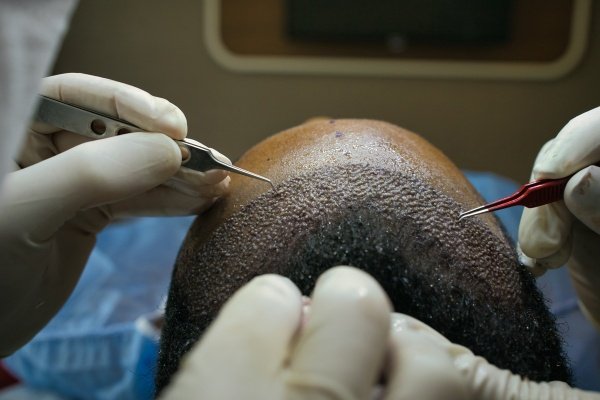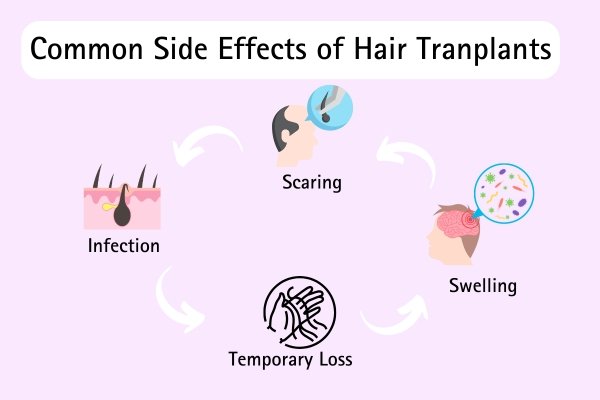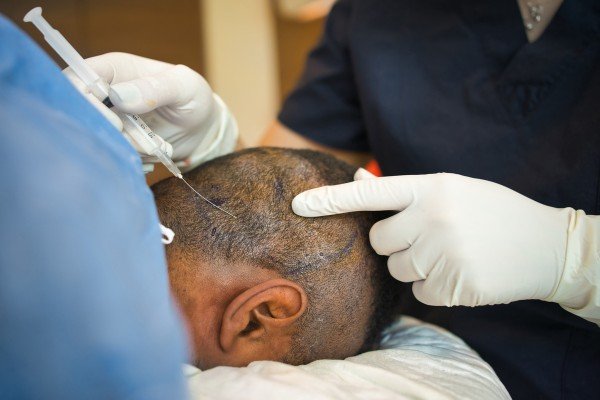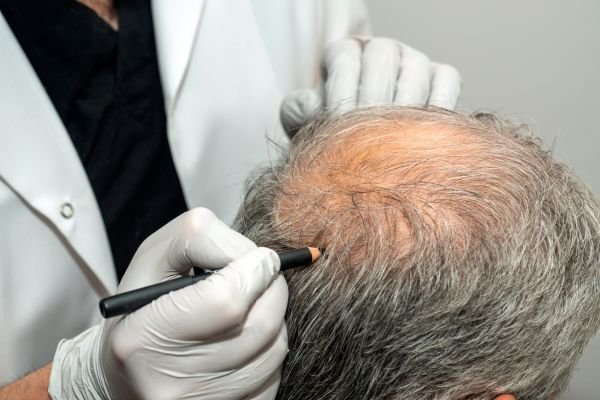As hair problems grow, restoration procedures are in popularity, especially among those dealing with thinning, dameging furs. Concerns about potential health risks also arise. The issue, “Can hair transplant cause cancer?” is one that is often posed.This article will explore the science, myths, and facts behind these procedures to find out whether there’s any connection to malignant tumours.
What Is a Hair Transplant?
A grafting is a surgical process where the coat is moved from one area of the scalp, usually at the back, to regions experiencing thinning. There are two primary techniques used today:

- Follicular Unit Transplantation (FUT): This include removing a strip from the donor region, often from the back. The vacuole from this strip are then separated and insert to the target area.
- Follicular Unit Extraction (FUE): This method involves removing individual cell from the donor area and move them directly to that surface which needs more growth. Compared to FUT, FUE creates small, less obvious scars.
Both techniques are relatively safe and minimally invasive, performed in outpatient settings with local anesthesia.
Addressing the Concerns
Understanding how cancer develops is essential. It is a condition triggered by genetic mutations in cells, which may occur due to factors such as:
- Genetics: Some are hereditary and arise from family-linked mutations.
- Environmental Exposures: Certain chemicals, radiation, and other environmental elements can increase cancer-risk.
- Lifestyle Choices: Habits like smoking, an unhealthy diet, and physical inactivity are linked to higher tumor.
Hair Transplants and Cancer Risk: Is There a Connection?
No Scientific Evidence Links grfting to Cancer
There is no scientific data suggesting that hair-transplants lead to poison. In fact, can hair transplant cause cancer is a question that has been investigated over the years, and the findings show that the process only involves relocating natural cellule. Because no foreign materials are introduced, the procedure does not activate carcinogenic processes.
Studies Supporting Safety
Long-term studies consistently show that can hair transplant cause cancer is an unfounded concern. Data from decades of tracking patients who’ve undergone these procedures reveals no increased risk of developing disease. Many scientific reviews confirm that these procedures do not contribute to tumour risk.
Common Side Effects of Hair-Grafting (That Are Not Cancer)
While generally safe, follicle restoration procedures can have some minor side effects. However, none are linked to poison.

-
Scarring
FUT and FUE methods may result in scarring. However, FUT often results in a linear scar, whereas FUE produces small circular mark that are less visible.
-
Infection
In rare cases, infections may occur if the scalp is not kept clean post-surgery. Antibiotic medication promptly usually fixes these problems.
-
Temporary Loss (Shock Loss)
Occasionally, transplanted or nearby hairs may fall out temporarily due to the trauma of the procedure. These typically regrows within months.
-
Discomfort and Swelling
Mild pain and swelling may occur, which over-the-counter medications typically manage. Usually, it goes away in a few days.
Myths About Cancer Risk and Hair Transplants
Understanding where myths come from can help dispel them. Can hair transplant cause cancer might stem from misunderstandings surrounding surgery and its effects:
- Fear of Surgery: People may worry that any form of surgery, including restoration, could carry risks like cancer.
- Misinterpretation of Hair-Restoration Technology: Some people are not fully aware that this procedure does not involve any agents known to increase bacterial risk.
- Concerns Over Cell Stimulation: Hair-transplant procedures stimulate follicles for growth, which some may assume could lead to abnormal cell growth. There is, however, no scientific basis for this concern.
Are There Any Health Risks with Restoration?
For most people, the health risks associated with this are minimal. However, certain individuals with pre-existing conditions may need extra consideration. See a medical professional if you have:
- Autoimmune Conditions: Some autoimmune disorders target follicles, making transplants less effective.
- Chronic Illnesses: Those with heart disease or diabetes may need additional medical clearance.
- Scalp Conditions: Issues like severe psoriasis may affect healing and require pre-treatment.
Precautions to Take When Considering Hairs Restoration
- Choose a Certified, Experienced Surgeon
Always work with a qualified professional to ensure safety standards and proper aftercare. - Follow All Pre- and Post-Operative Instructions
Adhering to aftercare recommendations, including hygiene measures, can help reduce the risk of complications. - Share Your Medical History
Being open with your doctor about your health history and medications can help tailor the procedure for optimal safety.
Why Hair-Transplants Are Considered Safe

No Carcinogenic Exposure
The question, Can hair transplant cause cancer? is widely answered by the fact that no carcinogens are involved in the process. Unlike treatments that may involve external chemicals or substances, are purely a relocation of existing follicles without altering internal processes.
Natural Growth Process
The transplanted follicles continue to grow naturally, maintaining their biological properties and reducing any potential health risks.
Minimal Impact on Surrounding Tissues
These precision-based procedures that only affect the targeted area, leaving surrounding tissues untouched. This reduces the likelihood of inflammation or cell damage that could lead to complications, and it ensures that healthy tissues are not disrupted. The minimal impact contributes to the overall safety of the procedure and reduces recovery time.
Lack of Systemic Side Effects
There is no risk of introducing foreign substances that might trigger systemic reactions or long-term side effects. This makes restoration a localized, safe option for growth without affecting other bodily functions.
Can hair transplants cause cancer ?
This concern has been thoroughly studied, and no scientific evidence shows an increased cancer risk from restoration procedures.
Is a hair transplant safe for everyone?
Although usually safe, those with chronic or autoimmune diseases should see a doctor before having a procedure.
What should I do if I have post-surgery adverse effects?
Minor side effects like swelling are common and typically resolve on their own. However, consult your doctor for any signs of infection or if symptoms persist.
Finale
In summary, can hair transplant cause cancer has been a common concern for years. However, studies show no link between restoration and disease development. By choosing a certified surgeon and following proper aftercare, individuals can confidently undergo, knowing they pose no increased risk of pestilence.






